Sphynx cats are among the most unique and recognizable cat breeds, known for their hairless bodies, striking features, and affectionate personalities. Cat enthusiasts adore these captivating felines for their intelligence, playfulness, and dog-like loyalty.
This guide explores everything you need to know about Sphynx cats, from their history to care needs, and why they make such extraordinary companions.
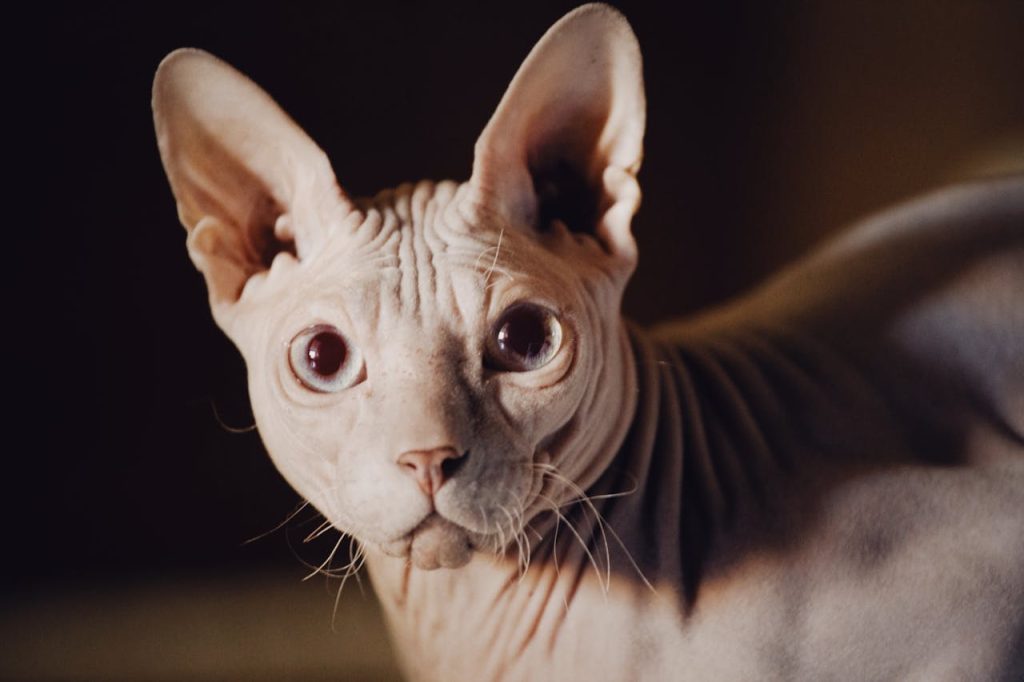
Table of Contents
Introduction
The Sphynx cat is one of the most distinctive and fascinating cat breeds in the world. Their lack of fur sets them apart, but their affectionate and social nature makes them a beloved companion for many. Despite their unusual appearance, they are known for their warm, soft skin and high-energy personalities.
Unlike most cats, the Sphynx thrives on human interaction and enjoys being the center of attention. Whether they are curling up on a warm lap or playfully exploring their surroundings, these cats bring joy and companionship to their owners.
Looking for more reasons to adore cats? Read our article, Why Cats Are the Best Pets?
History and Origin
The Sphynx breed originated in the 1960s when a natural genetic mutation resulted in a hairless kitten in Canada. Breeders recognized the uniqueness of this trait and selectively bred hairless cats to develop the modern Sphynx we know today.
These cats have since gained worldwide popularity, admired for their rare appearance and affectionate nature. The breed was further refined through careful breeding with other cats, including the Devon Rex, to strengthen their genetic diversity and maintain their signature look.
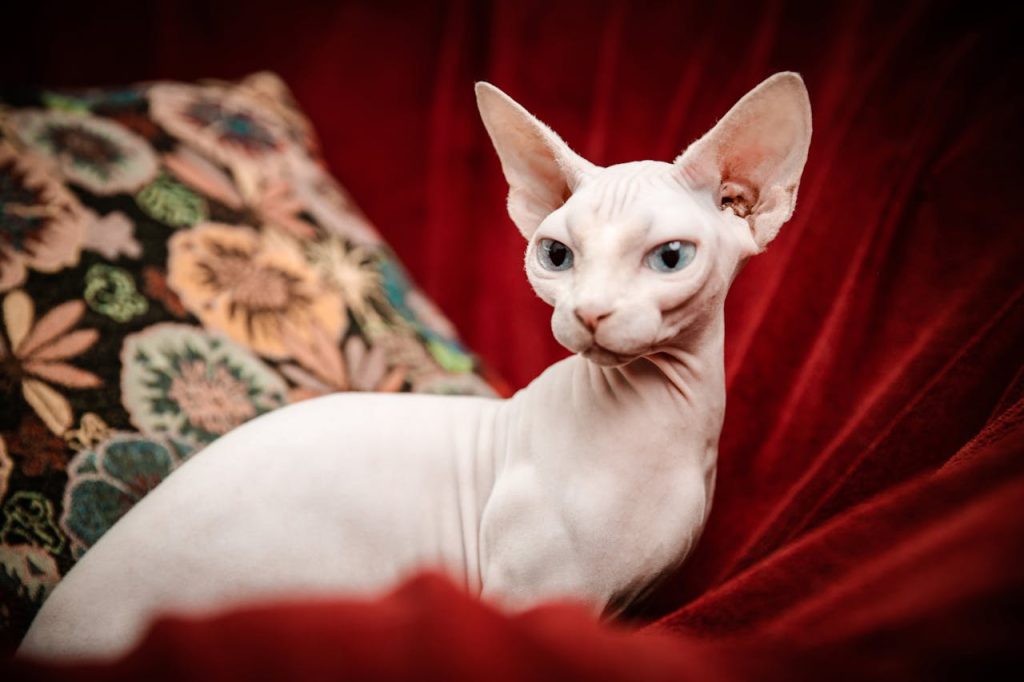
Why Were Sphynx Cats Created?
Unlike many pedigree breeds that were selectively bred for specific working roles, Sphynx cats were developed primarily for their unique appearance and affectionate temperament. Their hairlessness is a result of a recessive gene, making them one of the most distinct breeds in the feline world.
Despite their lack of fur, they are not completely hypoallergenic, as allergens are found in their skin and saliva. However, they do shed less dander, which may make them a better option for some allergy sufferers.
Physical Characteristics
Sphynx cats are famous for their hairless bodies, but their skin has a soft, suede-like texture. While they may appear completely bald, some have a fine peach-fuzz layer that is barely visible.
- Body: Medium-sized, muscular, and sturdy
- Ears: Large, bat-like ears that give them a distinctive look
- Eyes: Large and expressive, often in shades of green, blue, or gold
- Skin: Wrinkled, soft, and warm to the touch
- Tail: Long, slender, and whip-like
Their lack of fur means they feel warm to the touch, making them ideal cuddle companions. Their skin color can vary, often appearing in shades of pink, gray, cream, or spotted patterns.
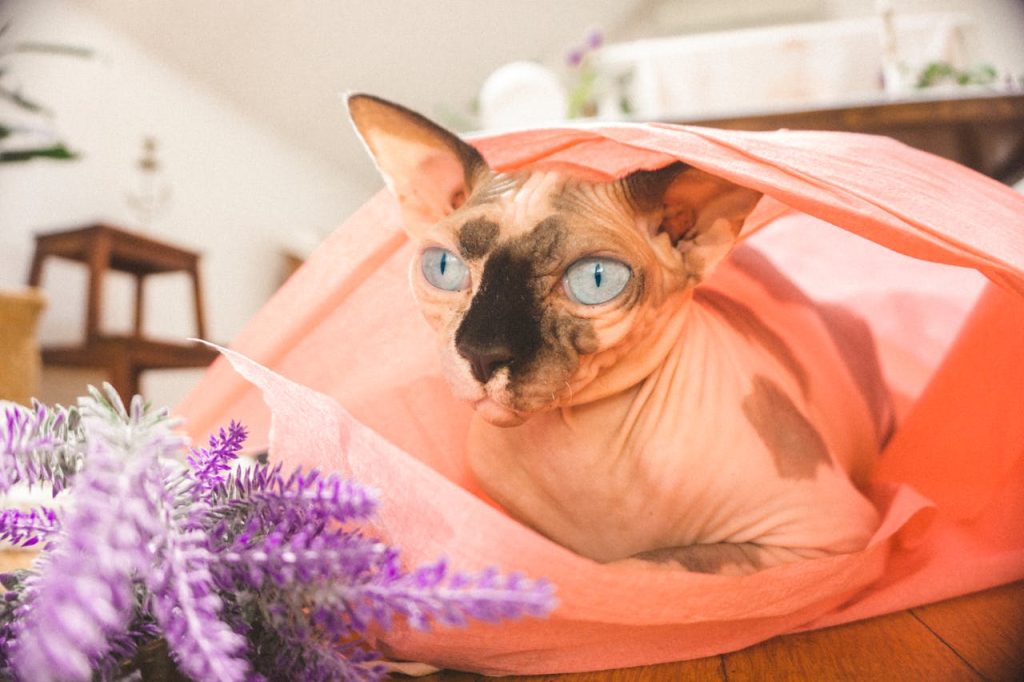
Temperament and Personality
Sphynx cats are affectionate, intelligent, and extremely social. They form strong bonds with their owners and often follow them from room to room. Their personality traits include:
- Playfulness: They are highly energetic and love to play with toys or engage in interactive activities.
- Curiosity: These cats are known for their inquisitive nature and love to explore.
- Loyalty: Often described as having a dog-like personality, they enjoy being around people and even greet their owners at the door.
- Cuddliness: Due to their lack of fur, they seek warmth and love snuggling up to their humans or under blankets.
Sphynx cats are also known for their vocal nature, frequently “talking” to their owners with soft chirps and meows.
Looking to bring home a new feline friend? Read our guide on Choosing the Perfect Kitten.
Choosing the Right Sphynx Kitten
If you are considering adopting a Sphynx kitten, look for a responsible breeder who prioritizes health and ethical breeding. Since these cats require specific care, ensure the kitten:
- Comes from health-tested parents
- Has bright, clear eyes and healthy skin
- Displays an active and playful temperament
Adopting shelters or Sphynx-specific rescue groups is another great option for giving these wonderful cats a loving home.
Intelligence and Training
Sphynx cats are highly intelligent and can be trained to do tricks, respond to commands, and even walk on a leash. They thrive on mental stimulation and enjoy puzzle toys that challenge their minds.
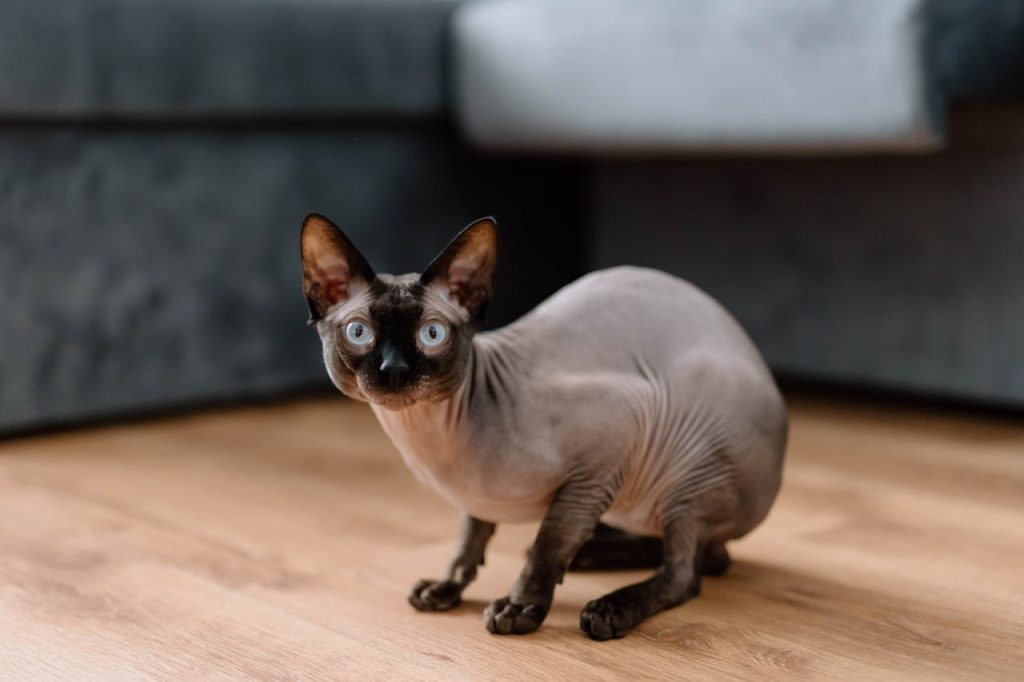
Exercise and Energy Levels
Sphynx cats are highly active and require plenty of playtime. Keep them entertained with:
- Interactive toys
- Cat trees and scratching posts
- Daily play sessions to keep them engaged and fit
Diet and Nutrition
A high-quality, protein-rich diet is essential for Sphynx cats due to their fast metabolism. Because they do not have fur for insulation, they burn more calories to maintain body heat.
Recommended feeding:
- 2-3 meals per day of high-quality wet or dry food
- Plenty of fresh water to keep them hydrated
Health and Lifespan
Sphynx cats are generally healthy, but due to their hairlessness, they are more prone to certain issues:
- Skin problems (oils build up, requiring regular cleaning)
- Temperature sensitivity (they get cold easily and need warm environments)
- Heart conditions, such as hypertrophic cardiomyopathy (HCM)
With proper care, Sphynx cats can live 12-15 years or more.
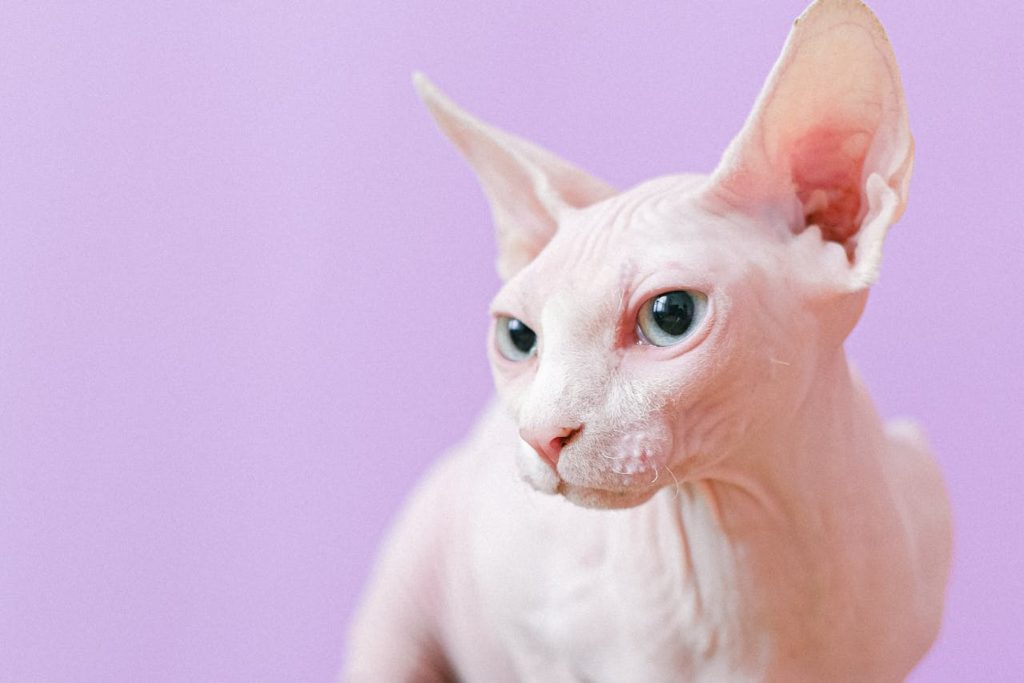
Grooming and Coat Care
Although they lack fur, Sphynx cats require regular grooming to keep their skin healthy:
- Weekly baths to remove oil buildup
- Ear cleaning to prevent wax accumulation
- Nail trimming to keep their claws healthy
Fun Facts About Sphynx Cats
- Their lack of fur makes them feel warmer to the touch than other cats.
- Despite their hairlessness, they produce body oils that require regular bathing.
- They often sunbathe to stay warm but can get sunburned, so protection is necessary.
- Sphynx cats love to snuggle under blankets to keep warm.
Challenges of Owning a Sphynx
While Sphynx cats are incredibly lovable, they require dedicated care. Some challenges include:
- Frequent bathing to prevent oily skin
- Keeping them warm in colder months
- Skin sensitivity requiring gentle products
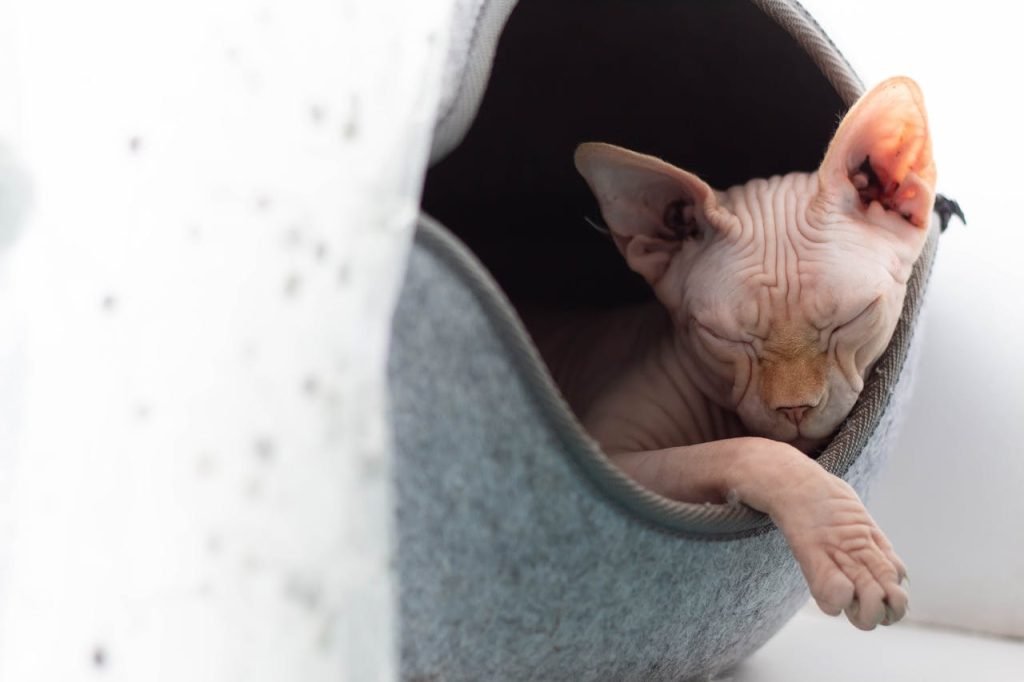
Tips for Sphynx Owners
- Provide warm blankets and heated beds.
- Use gentle, hypoallergenic shampoos for bathing.
- Keep them indoors to protect their sensitive skin.
- Schedule regular vet check-ups to monitor their health.
Final Thoughts on Sphynx Cats
The Sphynx is a remarkable breed known for its unique appearance, affectionate nature, and playful energy. These cats require special care but reward their owners with endless love and companionship.
If you’re looking for a cat that is social, loving, and full of personality, the Sphynx is an excellent choice!
Explore more cat breeds like the Domestic Shorthair, Persian Cats, Maine Coon, Ragdoll Cats, and Bengal Cats to find the perfect feline companion!
FAQs
Are Sphynx cats expensive?
Yes, Sphynx cats are expensive, typically costing $1,500–$3,000 due to their rarity and breeding requirements.
Are Sphynx cats from Egypt?
No, despite their name, Sphynx cats originated in Canada in the 1960s through selective breeding.
Is a Sphynx cat a good pet?
Yes, Sphynx cats are affectionate, social, and playful, making them excellent companions.
Are Sphynx cats good at hunting?
No, Sphynx cats lack fur for camouflage and are more dependent on humans than other breeds.
Do Sphynx cats smell?
Sphynx cats can develop a slight odor due to oil buildup on their skin, requiring regular bathing.


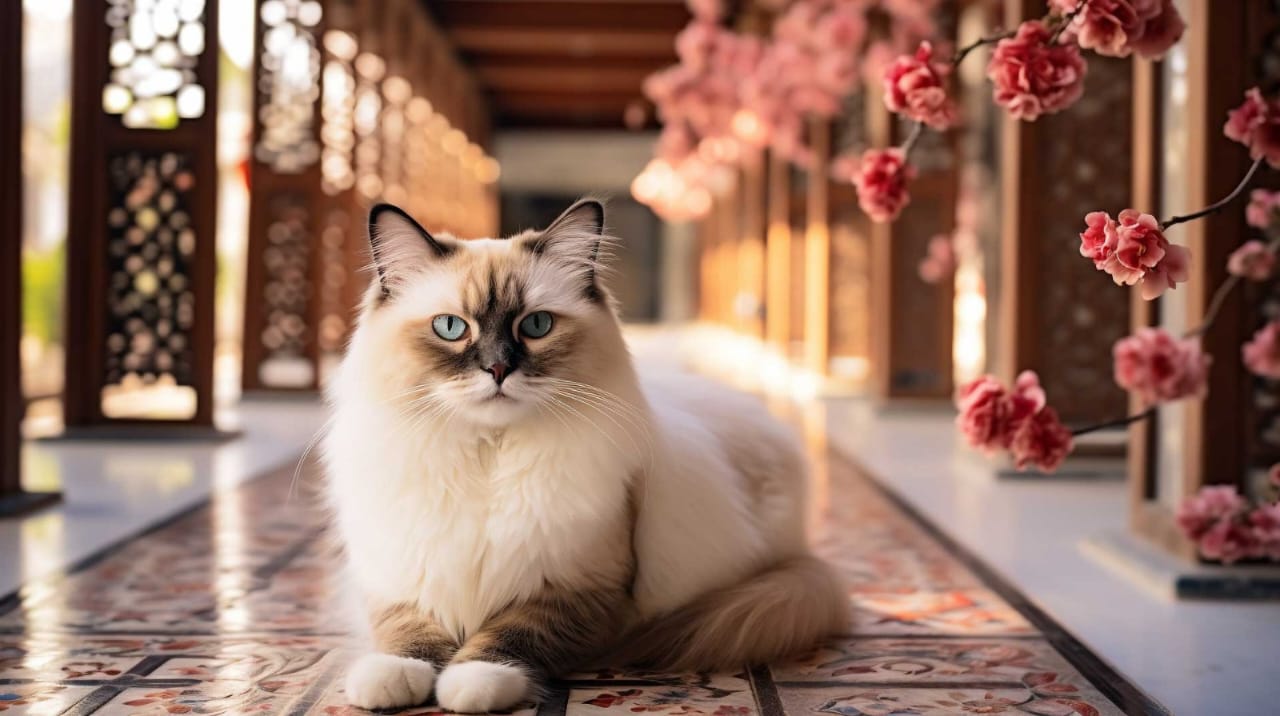
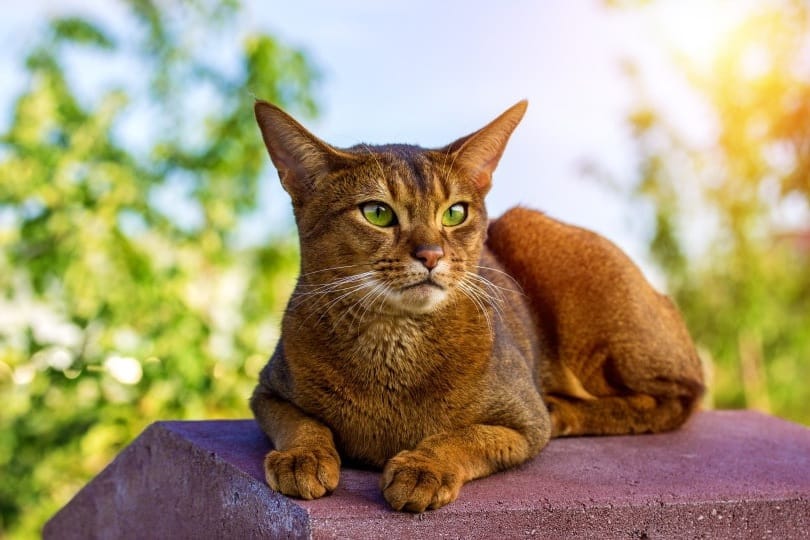
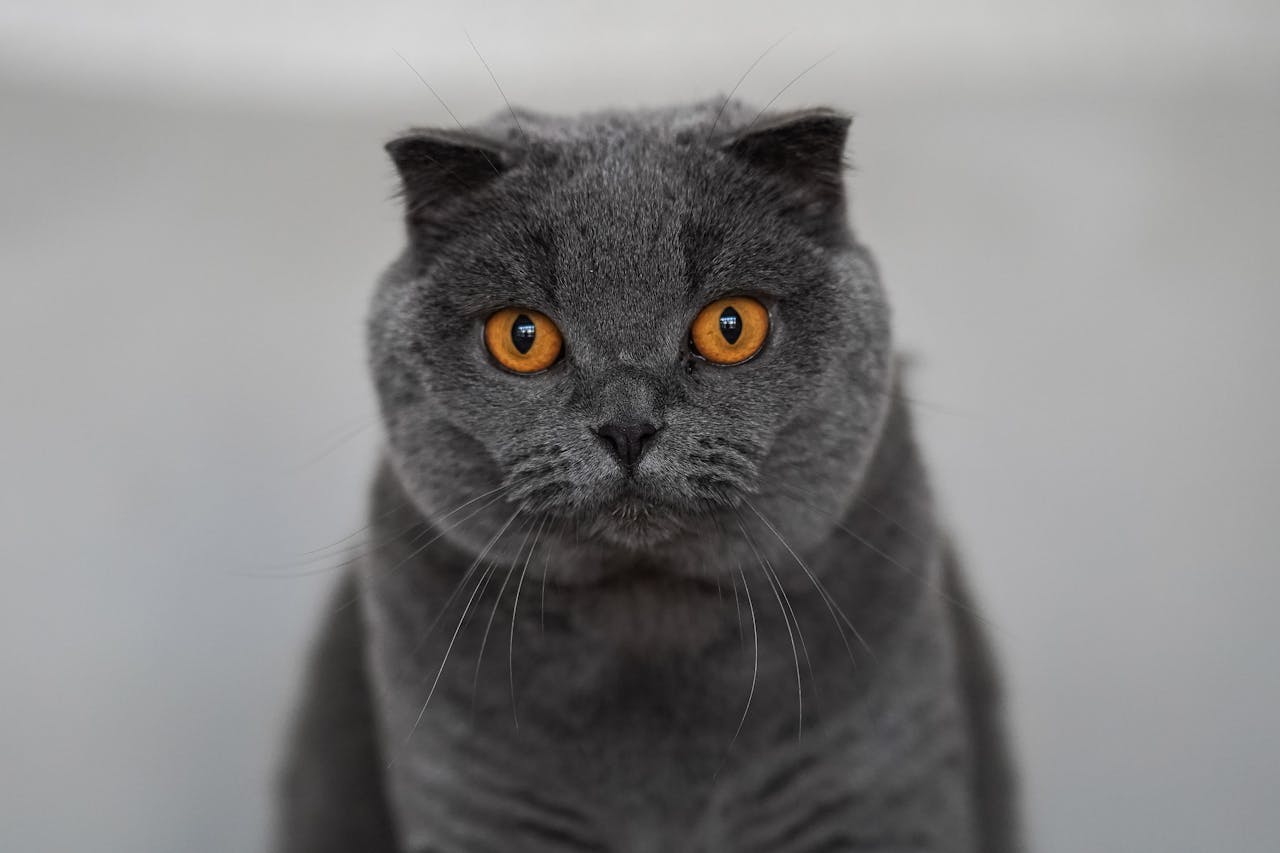
2 Comments
Pingback: British Shorthair: The Ultimate Guide to This Charming Cat Breed - Pet Bonded
Pingback: Siamese Cats Care Guide: Diet, Grooming & Health Tips - Pet Bonded